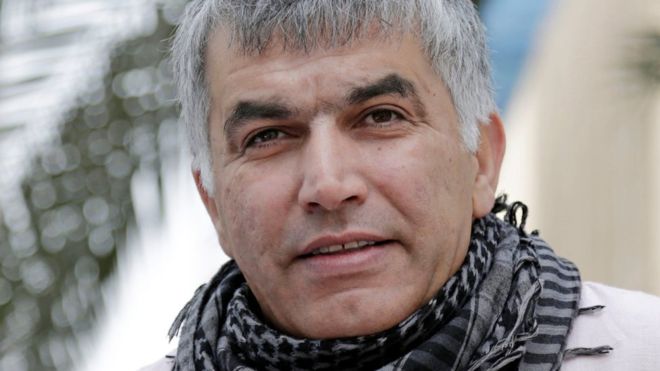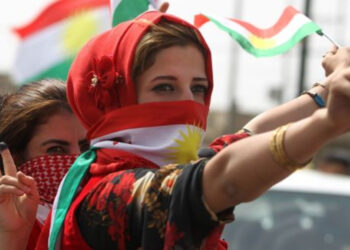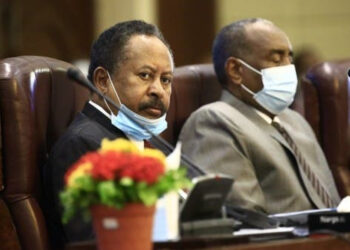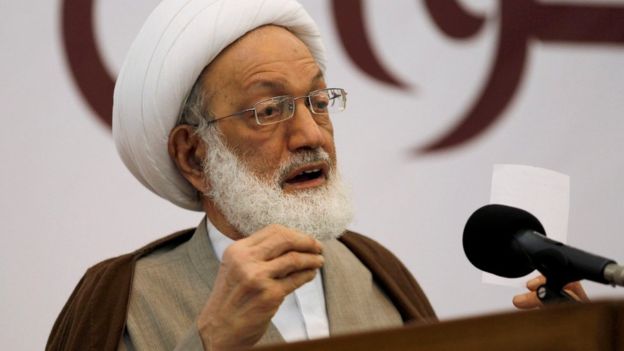Jailed high-profile Bahraini activist Nabeel Rajab was Wednesday sentenced to five more years behind bars over tweets critical of the Saudi-led intervention in the Yemen war and on the alleged mistreatment of prisoners, in a trial rights groups slammed as “shameful.”
Mr. Rajab, a leading figure in 2011 protests against the Gulf state’s Sunni minority monarchy, is already serving a two-year sentence handed down last July for “disseminating rumours and false information” in television interviews critical of the government. He has served multiple stints in prison since 2012, all linked to his role in the protests.
A judicial source close to the case said Mr. Rajab was found guilty Wednesday of insulting a neighbouring country and spreading false news and rumours. The charges are linked to tweets and retweets made via the activist’s account and critical of a Saudi-led coalition, including Bahrain, that has been fighting in Yemen in support of its beleaguered government since 2015.
The #Bahrain High Criminal Court sentenced today prominent human rights defender Nabeel Rajab to five years imprisonment for tweeting. In total, he is serving seven years for peacefully exercising his right to #FreedomOfExpression.
— Amnesty Bahrain (@aibahrain) February 21, 2018
‘Shameful Attack’
The Bahrain Center for Human Rights, which Mr. Rajab co-founded, the World Organisation Against Torture (OMCT) and the International Federation for Human Rights (FIDH) released a joint statement Wednesday saying the charges came over a March 26, 2015 tweet voicing criticism of the “hatred, destruction and horrors” of war.
The Saudi-led military alliance had launched its first air raids on Yemen that same day.
The charges also relate to tweets critical of Bahrain’s treatment of inmates at the notorious Jaw prison, south of the capital Manama, according to the rights groups.
Amnesty International slammed Wednesday’s ruling as a “shameful attack on freedom of expression,” while FIDH called the verdict an “outrageous sentence (that) contributes to further shut down space for civil society in the country.”
Human rights groups have warned they fear for the health of Mr. Rajab, who has been hospitalised multiple times in recent years.
FIDH, OMCT and the Gulf Center for Human Rights said the activist had been advised not to take his medication back in January over fears the government had interfered with the treatment.
But Mr. Rajab’s son Adam tweeted that his father’s “first reaction to the court ruling was to smile and flash the sign to hold strong.”
Authorities in Bahrain, a tiny Shiite-majority kingdom strategically located between Saudi Arabia and Iran, have jailed dozens of high-profile activists and disbanded both religious and secular opposition groups since 2011.
They have stripped hundreds of those convicted of their citizenship, making many stateless, according to Amnesty International.
The archipelago plays a key military role in the Gulf, hosting both the U.S. Navy’s Fifth Fleet and a British military base that is under construction.
U.S. President Donald J. Trump has eased restrictions on arms sales to Bahrain since taking office in January last year. The kingdom later announced it had signed deals with US defence company Lockheed Martin for the acquisition of upgraded F-16 fighter jets.
U.S. State Department spokeswoman Heather Nauert said on Tuesday that Washington had “very serious concerns” about the case against Rajab, whom she called “a prominent human rights activist.”
The Bahraini government has accused Iranian authorities of backing the protest movement in a bid to overthrow it. Tehran denies involvement.























